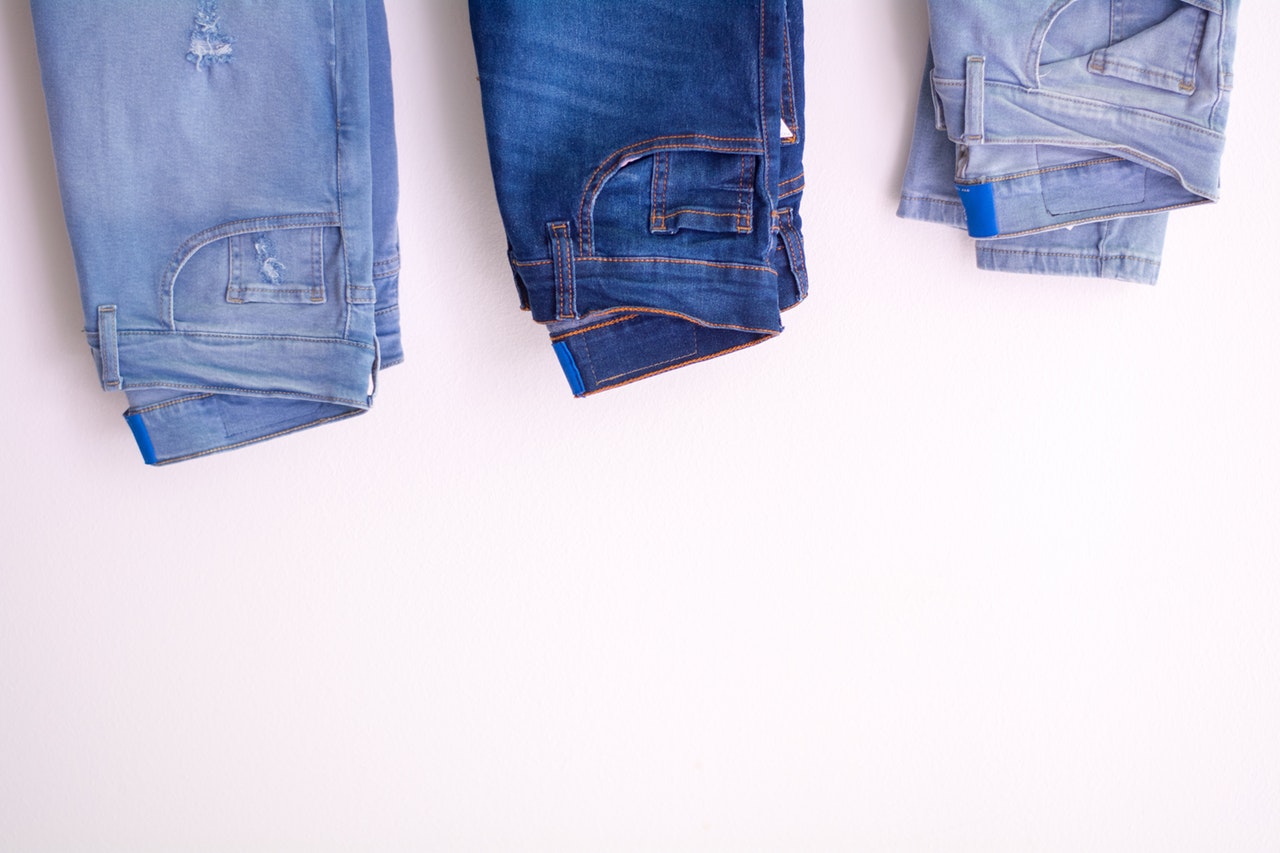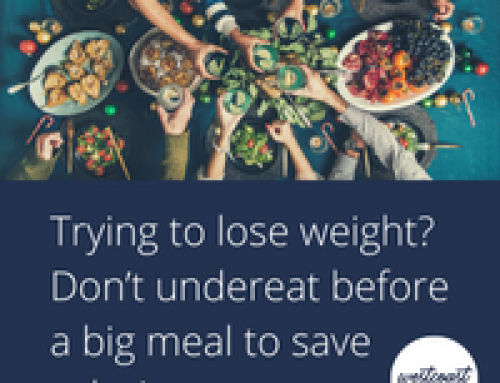Can stepping on the scale hurt your weight loss?
Can you believe it’s August already? After enjoying the sunshine while hiking through Golden Ears this long weekend, I wanted to connect about something that has been coming up for some of my clients the last couple weeks – a common habit that can sap motivation and pull you off course. Can stepping on the scale hurt your weight loss?
Trying to get back in to your favourite jeans? Hopping on the scale so often may be sabotaging your progress. Maybe you’re popping on a few times a week, or even daily as a way to “stay on track” after feeling like you’ve lost momentum this summer. And when you’ve been eating well and active, and all of a sudden the number pops up a couple pounds you feel totally defeated and might even give up for a few days. What’s the point, am I right? On the other end, some clients completely avoid the scale because they’re so scared of what they’ll see, and end up being dragged down without even knowing where they’re starting.
Well, I’m here to remind you why I encourage my clients to stay off the scale day to day, and share what progress markers are more helpful to guide your decisions and progress throughout the week.
What those changes on the scale actually mean:
First – let’s clarify what our goals are here. When most of us say we want to lose weight, what we really mean is we want to lose fat. I’ve never had a client come in desperately hoping to lighten their bones or drop some muscle. So we’re trying to monitor if we’re losing extra fat mass, not just weight.
Significant day to day changes on the scale absolutely do not reflect fat loss (or muscle mass for that matter). Even if you were losing a respectable and steady 2 lbs per week, and your body was magically losing the exact same amount each day, it would only change by 130 grams (or 0.28 lbs).
Poop
Yep, I said it. Not glamorous but the undigested food in our gut and the amount of poop we’ve got on board all influence our weight. Have a fibre rich day? A bigger meal before bed? Gut slow because it’s a week before your period? Backed up for a couple days after travelling? All will contribute to more poop on board, and a higher number on the scale that has nothing to do with your body composition or weight loss. A study of 524 healthy people showed an average daily poop weight of 480 grams (over a pound). This dwarfs the amount of real fat loss you’d see in a day, making it impossible to tell in the short term what kind of weight you’re gaining or losing.
Water
This is the one that I see fluctuate most dramatically in clients. The amount of water in our blood, tissues and bladder is not stable. We’re living, breathing, constantly changing bodies! We move it around and pee extra out or retain it in our tissues depending on what we eat, drink and do.
Carbohydrates, salt and alcohol all contribute to water retention in different ways – if you watch closely, you may notice that a single high carb or high salt restaurant meal can drive your weight up for the next day compared to a homemade one that is lower salt or lower carb. But that water weight sloughs off within a few days of going back to normal.
Hormones can also cause huge swings in water retention – I’ve seen my female clients gain from 2-10 lbs month after month a few days before their period. Again, when the hormones shift in to the next phase, the body sloughs it off and the scale goes back to normal.
None of these water weight changes change how you’re doing in relation to your goal – holding on to some extra water after a meal out is NOT a reason to only eat at home and isolate from social situations. Drinking “skinny tea” which dehydrates you is not helping you lose the weight you’d actually like to lose.
So thinking about that respectable 130 grams of fat loss per day – you can see how hard it is to pull out whether you’re progressing compared to the huge shifts in poop and fluids. Let’s move on to how to actually measure progress without getting frustrated.
How to Measure Progress More Accurately:
Daily, the only things that matter are if you’re hitting your key habits.
What are you working on right now? Pick two or three things to follow every day and focus on those as markers instead of weight.
Some examples from other clients:
- Protein at each meal
- Veggies at each meal
- Taking a break instead of snacking
- Using my toolkit when I have a craving
- Stopping at a 7 on the fullness scale after meals
- Getting 7 hours of sleep
- Getting my X litres of water in
I’ll use myself as an example, right now I’m not feeling as energized as I usually do and have seen my hunger ramp up with the changes that come with eating and sleep patterns in the summer. So in my daily check in I’m looking for:
- 12 hour window “off” eating
- 5 L of water (my sweet spot where energy and endurance go up, and cravings go down)
- Snacking only when physically hungry (taking time to feel in to why I’m eating).
Write down what 2-3 things you’d like to track day to day in a journal or bedtime reminder in your phone, and focus on nailing the key habits consistently (80-90% of the time).
Weekly and Monthly, have some non scale (and scale) metrics that link to your goal.
-
Fit of clothes
If you’re trying to lose weight (or more accurately, some extra fat or fluff), fit of clothes is a nice objective measurement. Find a specific pair of shorts, jeans, or jacket that is a bit too snug to wear comfortably (but for the love of all that is good, don’t pull out something that feels terrible like your high school low rise jeans) to pop on once a week and see how it feels. Does it zip up a little farther, is the button easier to close? Are you noticing a little more comfort in the waistband? Look for where its feeling a bit uncomfortable on you, and use that as a goal and guide to how you’re doing.
-
Waist and Hip Measurements:
If done well (same person each time, similar time of day, and relatively trained in measuring) measurements can be a nice addition if you’re comfortable with it. I’d usually recommend these every 1-3 months as a concrete marker for those who are struggling to let go of micromanaging and feeling it more naturally.
-
Non Body Victories
Each of my client has 2-3 things we’re following that tell us about health or wellness in addition to (or instead of) other markers. When you feel good, you’re more motivated, and we know that we’re on the right track with a balance and style of eating that works for your body. Some ideas:
- Energy
- Sleep quality
- Hunger (less of it) or Cravings
- Gut health – bloating, regular and easy poops, minimal to no discomfort
- Progress and endurance in the gym, on the trails or wherever you’re active
- Mood
- Relationship with food – ideally thinking about it less, enjoying it, and ease of making healthy choices
-
Weight
As one of several markers, weight is okay to use once or twice a week if you don’t have a complicated relationship with the number that shows up on the scale. If you can see it and file it away as part of the picture, cool. If it changes your mood, brings down your day or otherwise makes you feel frustrated when it’s not perfect- put this tool down for awhile. Motivation and energy are key to sustainable change, don’t do something that is obviously undermining it.
Keys?
- Don’t weigh in on Mondays, our eating habits vary the most over the weekends so you’ll see some unpredictable and unpleasant numbers that might knock you off your mental game.
- Pick a day, and time, and stick to that. Eg/ Friday mornings, or Wednesday evenings.
I hope you feel more relaxed (and maybe a little scientist-y) about the number on the scale, and how you define progress each week. Consistency and sustainability are far more important to your larger goal than micromanaging – so you’ve got Dietitian’s orders to think bigger and obsess less.
Loved this post? It originally went out to our email newsletter, but got so much feedback I wanted to share it here. If you’d like to get in on our emails all things nutrition so you can get clarity and confidence on what you’re eating, join us here!







